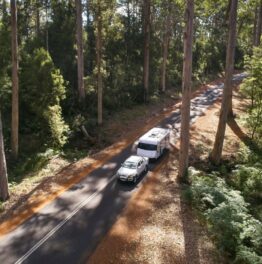

She’s a bonafide queen of code.
In her early twenties, Tina May was kicked out of the very business she co-founded. Left shocked, devastated and empty-handed after eight months of blood, sweat and tears, it would be understandable if she had taken time off to lick her wounds. Put bluntly, such a haematoma to the ego would be enough to put even the boldest entrepreneur off the next start-up, for a while at least, but not for Tina.
After what can only be called an efficient crying session, it was time to move on, and she was going to do it at lightning speed with her partner in life, Emile, as her new, steadfast business partner.
Just 30 days after the pair landed on an idea they knew had legs, the Institute of Code was born (yes, really) – an all-inclusive retreat held in Bali, where up to 15 students learn how to code and build a website using HTML, CSS, and JQuery.
Two years on and the pair have already held 16 retreats, with another nine to follow this year, and have more than 100 happy, up-skilled alumni to show for it. They also now employ four permanent staff and almost a dozen contracted staff that work at the retreats.
In case it wasn’t clear, Tina May is a woman who doesn’t do things in halves. “Anything I do, I tend to dive in deep,” she says, and this really is an understatement. Tina was only 20 years old and a mere 12 months into her marketing degree when she launched her first business with a friend – a small creative agency – and experiences like her Steve Jobs-esque firing have done nothing but add fuel to the fire in her belly. “I’ve never been satisfied with the status quo and have always looked for ways to improve things.”
With IOC – as its fondly known as to staff and past students – the ‘learn to code’ concept goes far beyond an ingenious use of one couple’s skillsets, that also enables them to live a pretty sweet life in tropical Bali. Rather, Tina and Emile are subverting archaic classroom conventions and redefining what it means to be in an environment that nurtures and fosters accelerated learning.
“The traditional education model is broken,” she declares. I studied a commerce degree, and along with most of my peers, I felt like less than 20 per cent of what I’d learned would actually be helpful in the ‘real world’. I wanted to figure out what that 20 per cent was and ditch the 80 per cent of fluff, and then teach it in a format that maximised the learning outcomes of our students.”


